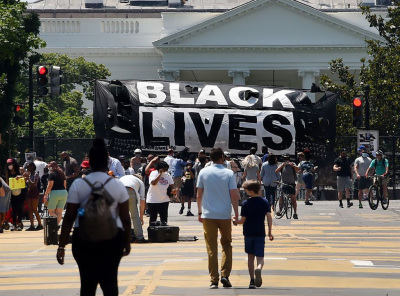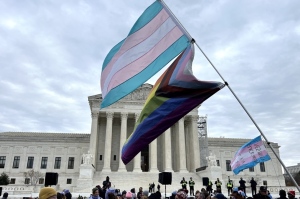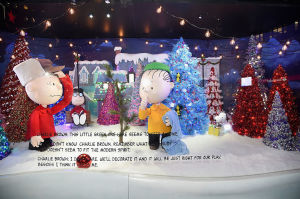Letting CRT break the Church is foolish and misguided

The people of God are in many ways also the people of the state. The issues that permeate dialogue in the political realm also make their way inside the walls of the church, and people of faith are every bit as tempted to divide along political lines as their nonreligious counterparts. Ideas connected with critical race theory are currently at the forefront of this divide.
Before examining the church’s criticism of critical race theory, a proper definition is vital. Legal scholars at the UCLA School of Public Affairs define critical race theory as the idea that “racism is engrained in the fabric and system of … American society. The individual racist need not exist to note that institutional racism is pervasive in the dominant culture. This is the analytical lens that CRT uses in examining existing power structures.”
Critical race theory has garnered a bevy of commentary from many within the Christian community. Gerald McDermott, Anglican priest and author of Race and Covenant: Recovering the Religious Roots for American Reconciliation, wholly denounces critical race theory, calling it a “repudiation” of “traditional liberal political theory.”
On the other hand, figures like David French see CRT as useful tools, as long as one acknowledges their innate problems. “Critical race theory,” French opines, “has on occasion helped me to identify the reality and effects of oppression ... [b]ut we cannot lose sight of the fact that it’s ultimately Christ who ushers in the new creation.”
McDermott and French are far from the only voices in the space — the interested reader can read hundreds of Christian perspectives on the subject from Jemar Tisby to Voddie Baucham. But, amidst the plethora of perspectives, the practical question remains: How are Christians to continue to live in community alongside one another even as they wrestle with the latest controversy?
Opinions on critical race theory are rarely what truly divide Christians. It’s our fear that those with differing opinions on this issue are not merely mistaken, but violating scriptural essentials. This sense is dangerous, says Dr. Carl Trueman, theologian and author of The Rise and Triumph of the Modern Self. Trueman, a professor of biblical and religious studies at Grove City College, exhorts Christians to first take their discussions on issues like CRT out of the world of social media and engage with each other on platforms that allow for real discourse.
“Do it person to person, or via substantial op-eds and articles, not via Twitter,” he exhorted, noting the tendency of online arenas to unnecessarily raise the temperature of discussions.
While Trueman’s exhortations to have debates in person are well worth considering, the non-electronic medium of debate has admittedly proven no guarantee of charity when it comes to subjects like CRT. For example, Southern Baptist Convention theologian Russell Moore alleged that dialogue on race relations in the convention, even within members’ own homes, was marked by “vicious guerilla tactics” and that those who called for increased racial diversity in the convention were hit with “psychological terror.”
While the temperature in the convention was already high before the contentious June 2021 meeting — several majority-black churches left in late 2020, and Beth Moore made her exit in March — Russell Moore’s letter emerged in February 2020. The debate was already there, it was already predicated on issues like critical race theory, and it had already turned toxic before the convention splintered around these issues. This splintering wasn’t confined to the Twitterverse; it involved real theological alliances and real consequences for the SBC.
If one only looks at groups like the Southern Baptist Convention to guide their perspective, the church’s response to critical race theory resembles the fictitious worshippers in Aleksandr Kuprin’s short story Anathema: “A mournful wail, tender angelic voices giving the response, ‘Anathema.’”
Such examples, says Trueman, are not to characterize the Christian community. While Trueman has many critiques of CRT, he places the divide over critical race theory as distinct from the church’s true purpose. Trueman mused: “What is the church for?” He explained that the goal of the religious community is not ultimately to solve political issues but to grow closer to the God we are called to worship.
The church’s debate around critical race theory, like any other political controversy, is at its heart a clash of two systems of thought. Within that clash are well-meaning Christians on both sides who are striving earnestly and honestly to grow closer to God. Some of them are wrong in their means of doing so, some deeply so. But the goal of the Christian community isn’t merely to understand the truth. It’s also to unite a community around it. Christians, including myself, have missed the mark of charity countless times. However, our imperfect reactions to the current moment do not negate our obligation to imitate our perfect Savior as best as we can.
Trueman’s words in Rise and Triumph describe the path ahead with refreshing clarity: “Every age has had its darkness and its dangers. The task of the Christian is not to whine about the moment in which he or she lives but to understand its problems and respond appropriately to them.”
He is right. As the church approaches Advent and commemorates the birth of our Lord, it behooves the church to realize once more the implications of the Incarnation. Christ did not come to earth merely to wage war against the forces of evil on this earth, but to instruct his Church as to the wisest way to fight that war. The church cannot successfully fight to advance the Kingdom while simultaneously anathematizing CRT and the Christians who see its benefits.
These discussions must happen, and we should strive to have them on platforms that allow for the civility and humanity that the people of God are called to. Have these discussions out — the debate is too big to sweep either side under the rug. Allowing true churches to break over issues like critical race theory is not only a patently unwise move but a disservice to the power of Christ, its one true Foundation.
Isaac Willour is a journalist for The College Fix and an editor for the Grove City College Journal of Law & Public Policy.




























